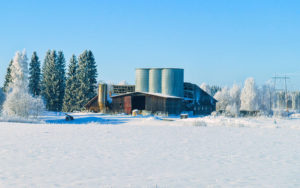
A lot of commercial and residential buildings use fuel oils to provide heat during cold seasons. There are many types of fuel oils that can be used for this purpose, but in most cases, owners of these properties prefer what’s referred to as #2 heating oil — or just heating oil — because it has a high calorific value. Calorific value is a term referring to the amount of heat per unit that the fuel oil is capable of producing.
Since the price of fuel oils can be exorbitant during the peak season when the demand is high, building owners choose to purchase during non-peak seasons when prices are relatively lower. The fuel oil is then stored outdoors in underground or above ground reservoirs for use during the cold weather. The problem is that fuel oil can freeze as temperatures drop. The building’s HVAC system will recognize this situation as a lack of heating oil and therefore shut down.
Preventing Fuel Oil from Freezing
How does heating oil freeze? As outdoor temperatures decrease, fuel oil starts getting cloudy but that doesn’t affect the furnace since the flow of oil from the tank isn’t affected. The problem starts when the outside temperature drops below 20 degrees Fahrenheit. Paraffin, an essential component of heating oil, starts to crystallize and separate from the oil.
The crystals cause clogging on the internal walls of the line as well as the surface of the fuel filter. The flow of the heating oil is partially blocked, meaning that the furnace doesn’t get sufficient oil, which in most cases, stops it from functioning. So, how can you keep fuel oil from freezing and avoid this unpleasant situation? Here are a few tips.
- Consider using blended heating oil. Blended heating has a lower freezing point than conventional fuel oils. The best freeze-resistant fuel oil comes form a blend of kerosene and diesel.
- Insulate the fuel lines. Use waterproof materials to insulate the whole fuel supply system. Because a large surface area of the fuel line is exposed to cold temperature, the fuel in the line is usually the first to freeze.
- Keep the oil filters indoor. Keeping fuel filters indoors reduces the likelihood of clogging. This is due to the fact that temperatures indoors will always be higher than the temperatures outdoors.
Keep heating oil from freezing with the above tips. In the event fan unexpected HVAC system shutdown due to frozen heating oil, contact the HVAC company immediately. In the meantime, provide alternative heating solutions such as electric heaters to keep the building warm.
